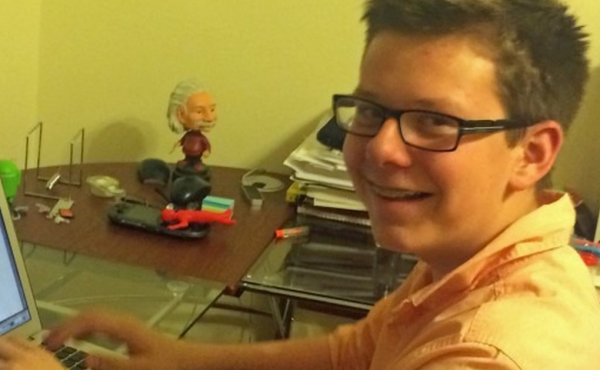(
CoinDesk) John Bush and Catherine Bleish began a road trip across the US with
their family of four this week, during which they will only spend
bitcoin.
Beginning in San Marcos, Texas, they drove into
Washington on Friday, the first stop on the “Uncoinventional Living
Tour”, for the
Bitcoin in the Beltway conference.
The self-dubbed Blush family will drive for four weeks and 4,400 miles, also stopping in Lancaster, New Hampshire for the 11th
annual Porcupine Freedom Festival and then to Kansas City, Missouri –
Bleish’s hometown – over the
Independence Day holiday before returning
back to Texas.
They will shoot five episodes of their reality show “Sovereign Living” during their journey.
Fighting a different way
Bush
and Bleish are both grassroots activists that spent years fighting the
political system in the US. Each helped start local political action
committes that focused on constitutional activism, civil liberties and
anti-police state causes in their hometowns of Austin, Texas and Kansas
City, respectively.
Deciding to build a family brought them to the
realisation that they needed to change their lifestyle choices – opting
instead to look for ways of being self-sufficient and building
communities separate from government influence. Bush told CoinDesk:
“We
started to think that if we really want to change the world to create a
more free society, the first thing we can do is to change the way we
live and start to live more free ourselves, and stop participating in
centralised or coercive institutions … Both of us began to realise that a
lot of work we were doing wasn’t making us more free. In fact, it was
just exhausting us and spending all our energy and our money and our
time.”
The Blush family farm
In aiming to get
off the grid, the family moved just outside of Austin, to start a farm
on which it produces its own food, provides its own source of water and
harvests its own alternative energy.
For the vision of their
lifestyle to be realised, they’ve set goals: to produce 50% of their own
food, store 50% of their own water, and reduce their dependency on the
central energy grid by 50%.
“That’s what the show’s all about,”
said Bush. “Trying to document and educate people about the values of
living a voluntary, natural life.”
Their show intends to document
their lives as they learn each day from their lifestyle, their
communities and themselves, as well as teach others how everyone can be
self-reliant and free from government influence – without fighting.
After they’ve wrapped filming for episodes five and six of “Sovereign
Living” they hope to be able to share it with the world through a media
streaming service like Netflix or Hulu.
Planning ahead
Bleish
mentioned that this is the first time in their bitcoin experience where
they’ve had enough tools and resources to live on bitcoin alone, citing
platforms such as
Gyft and
eGifter, as well as the
recent news by Expedia. Nevertheless, she emphasised the amount of effort it takes to plan a bitcoin-only itinerary:
“It’s
hard, it’s taken a lot of pre-planning. I had to look at every single
stop along the way and see what gas stations they had to make sure that
we were buying the appropriate amount of gift cards for each gas
station.”
For example, she explained that driving to
the northeast of the country, she found Exonn gas stations at each stop,
but that on the drive back home there weren’t any – but there were BP
stations.
Despite the need to “really be on top of things” she
added: “I want the world to know that it is possible to travel the
country using bitcoin only. And it’s not only possible but you can do it
comfortably and take care of a family of four along the way.”
For the full itinerary and updates on the Blush family’s trip you can read their
blog.
Open your free digital wallet here to store your cryptocurrencies in a safe place.





